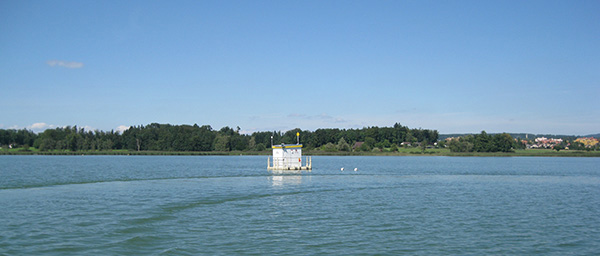Department Environmental Chemistry
Biotransformation in freshwater algae - Identification of transformation products and assessment of environmental relevance

When chemical substances reach the water, they can be subject to different processes, such as sorption, abiotic degradation or biotransformation. While biotransformation is well-studied in fish and in microorganisms, little is known about biotransformation in algae. In particular, polar organic micropollutants of recent concern such as polar pesticides, pharmaceuticals and personal care products are largely unstudied in this context. Recent studies have highlighted a significant potential role of phytoplankton in biotransformation of such compounds.
In this project, we seek to study the biodegradation of selected polar organic pollutants in algae, and to assess the importance of freshwater phytoplankton communities and their diversity in the fate of these compounds. To this end, we will develop a miniaturized liquid chromatography – high resolution tandem mass spectrometry method to identify biotransformation products with high sensitivity. Subsequently, we will study the biotransformation and toxicokinetics of a set of compounds in selected algal strains (standard strains of the green alga Chlamydomonas reinhardtii and the cyanobacterium Microcystis aeruginosa, and a triclosan-resistant strain of Microcystis aeruginosa) in laboratory experiments. The contribution of phytoplankton communities to the environmental fate will then be studied using communities sampled from Greifensee in different timepoints in the algal growth season, and will be related to the biodiversity of these communities.
